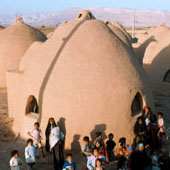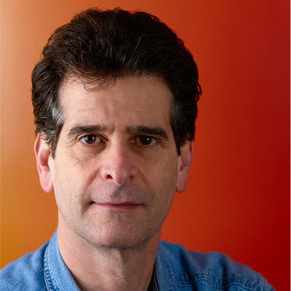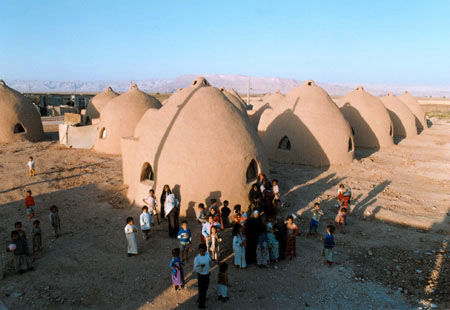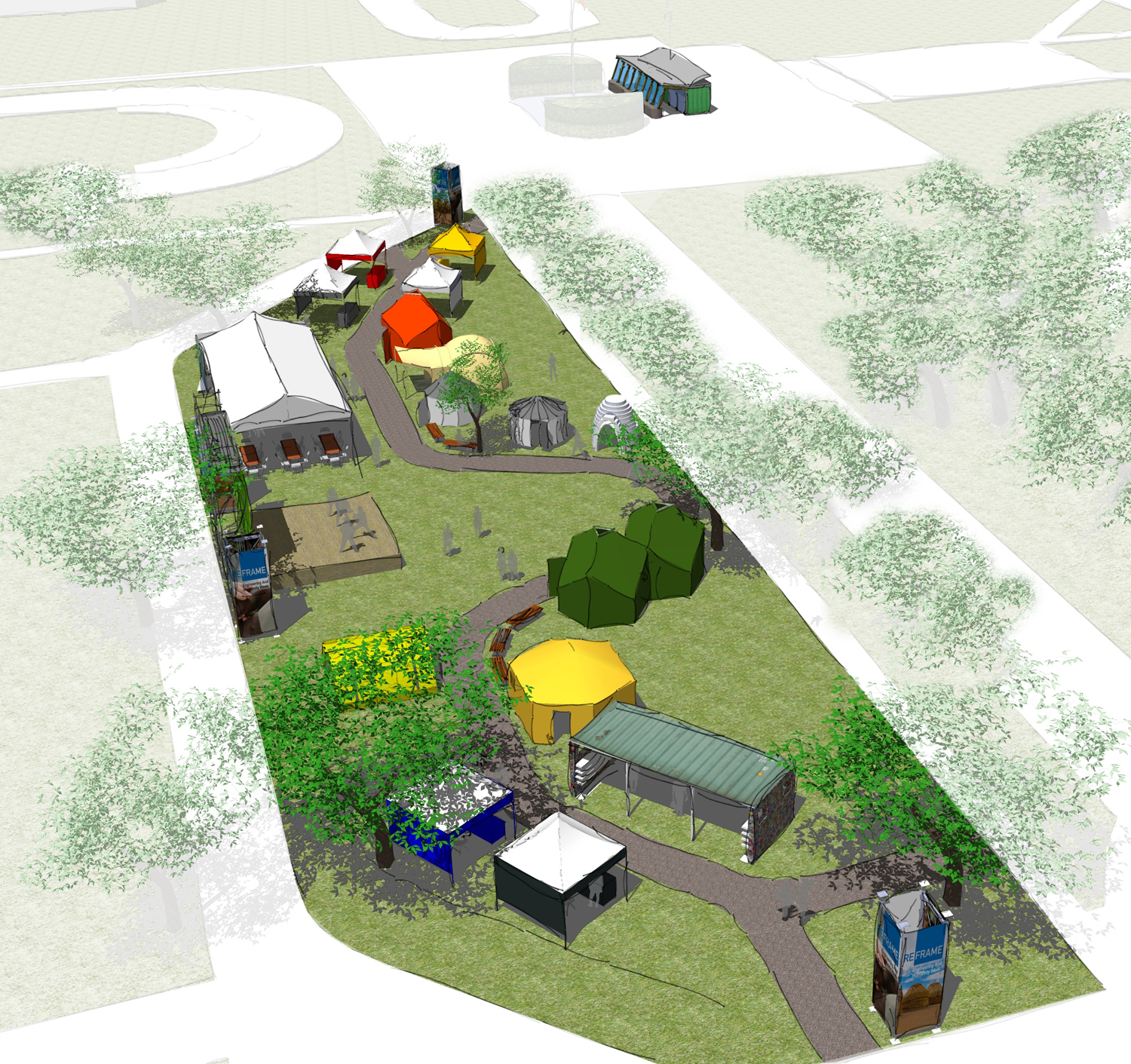Inventor Dean Kamen to receive inaugural
Hunt Institute Award For Humanitarian Technology
SMU looks at making the world a better place with Engineering and Humanity Week, April 11-14.

DALLAS (SMU) – SMU’s Hunter & Stephanie Hunt Institute for Engineering & Humanity will present its inaugural Visionary Award to Dean Kamen, the humanitarian inventor behind the Segway human transporter and other technological breakthroughs, including devices helping those in the developing world.
 Dean Kamen |
“We are honoring Dean Kamen for his success, his vision and his support in training a new generation of engineers who are committed to meeting the challenges of the developing world," said Hunter L. Hunt, who with his wife, Stephanie, founded the Hunt Institute to help find solutions to the most pressing problems of the impoverished. Kamen is currently working to perfect a nonpolluting, low-power water-purifying system, as well as solar-powered devices designed for use in underdeveloped countries. The inventor holds more than 440 U.S. and foreign patents – many for innovative medical devices that have expanded the frontiers of health care worldwide.
ENGINEERING & HUMANITY WEEK
 Sandbag shelters at a UN refugee camp |
The Living Village will be dedicated to the late Sargent Shriver, the driving force behind the Peace Corps and Lyndon Johnson’s War on Poverty, at 4 p.m. Monday, April 11, by his son, Anthony Shriver. This year marks the 50th anniversary of the Peace Corps.
Most of the week’s events are open to the public with tickets. A complete list of speakers and other information is available at www.EandHweek.org.
Panel discussions, innovative demonstrations, documentary films and cultural performances throughout the week will immerse students and community members in the nuts and bolts issues faced by impoverished and displaced people around the globe. Among the week's highlights:
- Maya Ajmera, inspirational founder of The Global Fund for Children (GFC) will speak at the April 11 kickoff event, "Innovation at the Bottom of the Pyramid."
- Richard L. Kauffman, chairman of Levi Strauss & Co. and former president and CEO of Good Energies, Inc., a global investment firm focusing on renewable energy and energy efficiencies, will be the keynote speaker on Tuesday, April 12, for a panel on business opportunities in emerging markets.
- On Wednesday, April 13, the winning team from the inaugural 2011 Student Design Challenge will be presented at the dinner honoring Dean Kamen. The challenge is focused on innovating new creative designs utilizing a low-cost shelter called the HabiHut for clean water and telecommunications distribution in Kenya.
- Vincent Cochetel, the United Nations High Commissioner for Refugees’ (UNHCR) representative for the United States and the Caribbean, will participate on a panel about shelters and the global housing crisis for refugees and others on Thursday, April 14.
- Other speakers and participants include Jeff Fulgham, chief sustainability officer for GE; Bruce McNamer, CEO of TechnoServe; Peter Thum, founder of Ethos Water; Bob Freling, executive director of the Solar Electric Light Fund; Malcolm Morris, founder of Living Water; John Mullins, distinguished professor at the London Business School; Chip Cottrell, partner at Deloitte; and Sergio Palleroni, architect and distinguished professor at Portland State University.
Background
 Rendering of "Living Village" |
The Hunter & Stephanie Hunt Institute for Engineering & Humanity, located in SMU’s Bobby B. Lyle School of Engineering, is focused on using technological innovation and market-based solutions to address the needs of those in poverty. The Institute is collaborating with businesses, non-governmental organizations, universities and others to develop this market-based alternative to traditional philanthropy as a means of promoting global development.
Gensler Dallas, part of the global design, planning and strategic consulting firm with more than 2600 professionals networked across 35 locations worldwide, is working in collaboration with the Hunt Institute on Engineering & Humanity Week.
“We’re bringing in innovative leaders to talk about the connections between poverty, sustainability, water, energy and shelter,” said Stephanie Hunt. “When we’re finished, we’ll have a model that other college campuses can duplicate nationwide.”
Geoffrey C. Orsak, dean of SMU’s Bobby B. Lyle School of Engineering, said, “If these kinds of collaborative events rapidly spread through the education and research community, and we hope they will, we will be training the next generation of engineers to develop practical solutions to problems we tend to write off as unsolvable.”
The student villagers will work with professors to demonstrate new technologies in the village, and these same students will share their experiences through a video blog posted on the Engineering & Humanity Week website.
“As designers, the team at Gensler has met a challenging, yet personally rewarding experience. We are proud to be associated with the efforts to construct the Living Village and showcase some of the innovative solutions in training today’s students for the future of the world they inherit,” said Judy Pesek, principal managing director of Gensler.
About SMU
SMU is a nationally ranked private university in Dallas founded 100 years ago. Today, SMU enrolls nearly 11,000 students who benefit from the academic opportunities and international reach of seven degree-granting schools.
About the Hunt Institute
The Hunter & Stephanie Hunt Institute for Engineering & Humanity is dedicated to using the power of engineering, collaboration and the free market to develop and implement solutions to the problems of the poor, both here and abroad. The institute is committed to identifying and creating technologies beneficial and affordable to the world's poorest people, while also educating engineering and non-engineering students in the design and distribution of those technologies to accelerate global development.
About Gensler Dallas
Gensler Dallas is part of the global design, planning, and strategic consulting firm, with more than 2,600 professionals networked across 35 locations worldwide. Consistently ranked by U.S. and international industry surveys as the leading architecture and interior design firm, Gensler leverages its deep resources and diverse expertise to develop design solutions for industries across the globe. Since 1965, Gensler has collaborated with clients to create environments that enhance organizational performance, achieve measurable business goals, enrich people and communities, and enhance everyday experiences. For its longstanding commitment to the advancement of sustainable design, Gensler received the Leadership Award from the U.S. Green Building Council in 2005. More information at www.gensler.com
# # #
09264-nr-03/30/11-kc